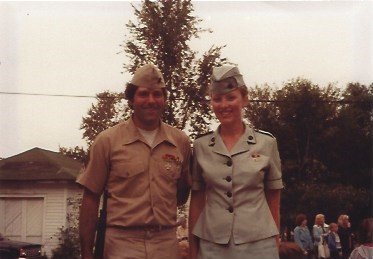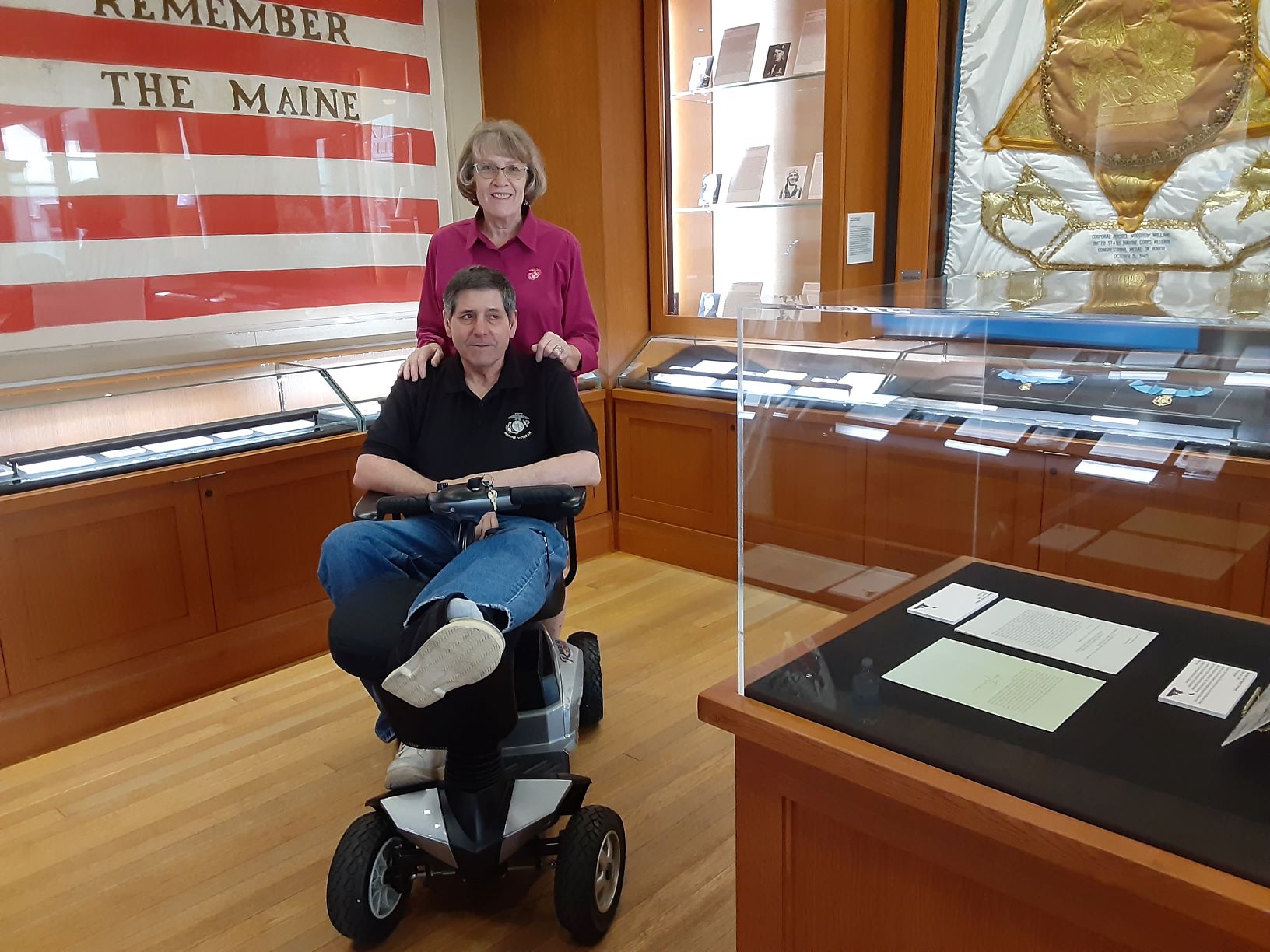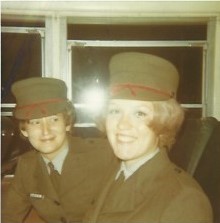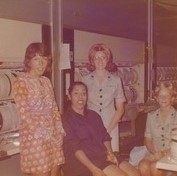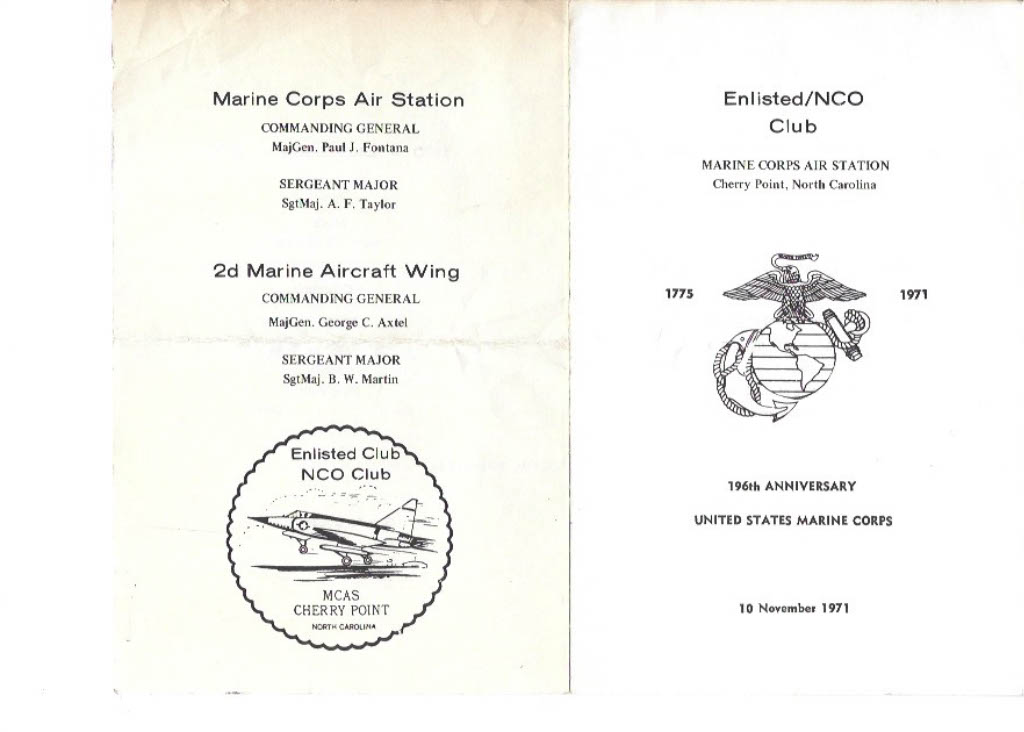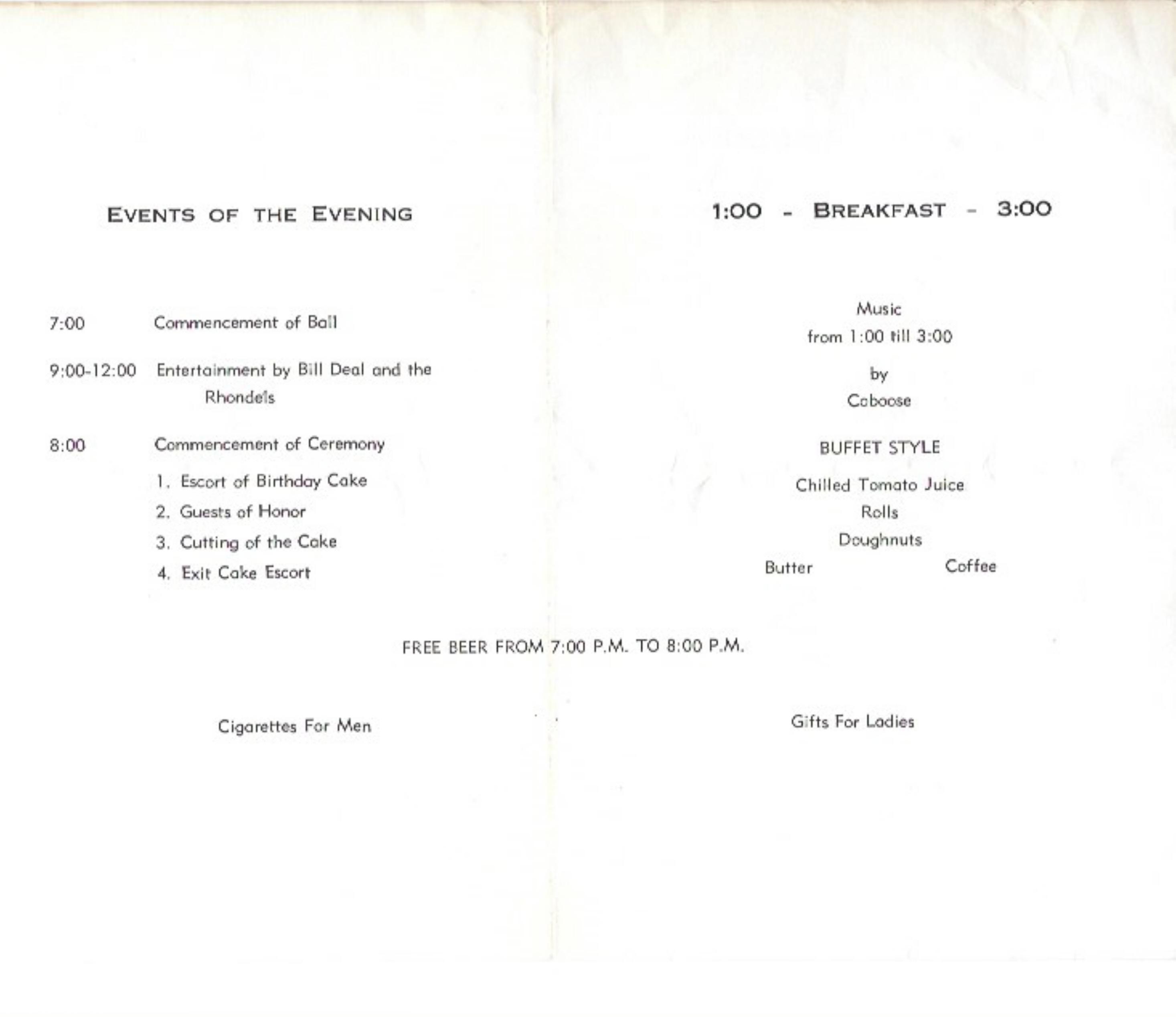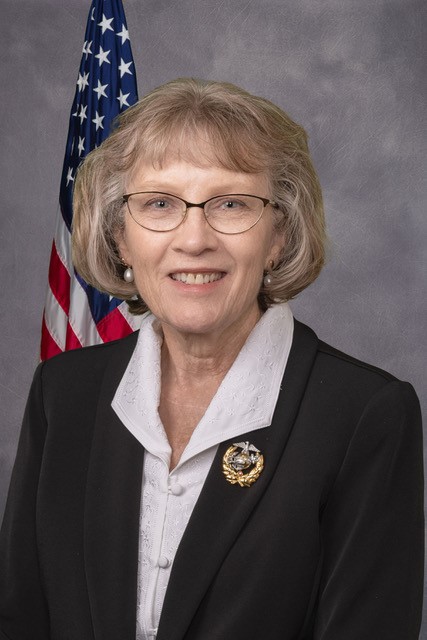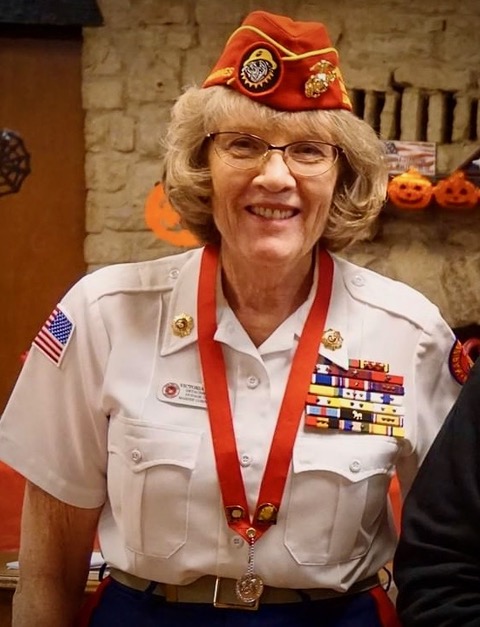Record date:
Gary & Victoria West Cobbett.pdf
Victoria Cobbett Transcript .pdf
Gary Cobbett, Sergeant and Victoria Cobbett, Sergeant
Most people do not join the U.S. Marine Corps looking for love. Gary and Victoria Cobbett sure didn’t. Each enlisted to serve their country during the peak of the Vietnam War. But when the two met at North Carolina’s Cherry Point base in 1970, it was love at first sight. Months later they were married, intertwining their two, very different Marine Corps experiences into one.
Gary Cobbett grew up in Buffalo, New York, the son of a mining family that left Pennsylvania coal country when he was a young boy. As he grew up, he watched many of his schoolmates ship off to Vietnam, with two losing their lives there. Inspired to serve his country and avenge his friends, Gary enlisted in the Marine Corps. He completed basic training at the notoriously intense Marine Corps Recruit Depot at Parris Island, South Carolina. There, he saw his bunkmate receive a “blanket party” beating much like the one later depicted in the film Full Metal Jacket. After becoming a full Marine, Gary shipped off to Okinawa, where he witnessed riots protesting the American presence on the island.
In March 1970, Gary arrived at Da Nang Air Base, a hub for U.S. operations in central Vietnam. Though trained in refrigeration repair, he became a sought-after handyman, capable of fixing almost anything. Gary performed his duties under withering pressure from communist forces, including 31 straight days of rocket bombardment which permanently scarred his hearing. One day, when rockets knocked out the base’s electrical lines, Gary braved sniper fire to climb and restore them. And enemy fire was not the only harrowing aspect of life at Da Nang. Fatal plane crashes were a frequent occurrence, and on one occasion, a disenchanted U.S. soldier opened fire in Gary’s barracks, wounding several of his comrades.
While Gary was serving in Southeast Asia, Victoria West enlisted in the Marine Corps. After completing high school in Lemont, Illinois, Vicki started college, where she was “bothered and dismayed” by anti-war protests and inspired by the stories of Vietnamese refugees she met on campus. She decided to join the military, following in the footsteps of her late father, a World War II veteran. Though she initially planned on enlisting in the Air Force, the friendliness of a Marine recruiter led her to join the Corps.
Vicki’s basic training experience was rather different from Gary's. She and her fellow female Marines were required to maintain a distinctly feminine appearance, often complete with wigs and skirts. While men trained with small arms, the women practiced service and hospitality. But boot camp was vigorous nonetheless, complete with strict discipline and intense physical demands. After graduating, Vicki wanted to ship off to Vietnam, but because of her gender, she received training as a computer specialist instead, working at Cherry Point. Though she and other female servicemen members were often treated as “second class marines,” Vicki’s skill and determination enabled her to make sergeant must faster than normal, just like Gary did.
When Gary returned from Vietnam, he was assigned to Cherry Point, where Vicki worked. The two met at a parachute training class and clicked instantly. Through a whirlwind romance of beach trips, fishing, and motorcycle rides, they fell in love. The pair married in March 1971 after four months of dating. However, just days after their nuptials, Gary received orders to ship off to the Mediterranean. His Atlantic crossing took him through Hurricane Ginger, whose massive waves nearly sank his ship. As the storm hit the Carolinas, Vicki feared for her husband’s safety, but eventually received word through a doctor in Spain that he had made it to Europe safely. While in the Mediterranean, Gary participated in NATO peacekeeping efforts in Greece and Turkey.
At the end of his tour in Europe, Gary and Vicki moved into non-commissioned officer housing near Cherry Point. But when Gary’s time in the service ended, they were forced to leave, as the corps ignored Vicki’s own NCO rank. Vicki was immensely frustrated by the unequal treatment, but it did not dampen her patriotism or love for the Marine Corps. When her own service time ended, the couple moved back to Vicki’s hometown of Lemont. Gary turned his military occupation specialty into a successful career in refrigeration repair, while Vicki used the GI Bill to become a registered nurse. Together they raised two children, each of whom followed in their parent’s footsteps by serving in the Marine Corps and Air Force. Both Vicki and Gary remain active in veterans’ organizations like the VFW and the Marine Corps League, supporting today’s servicemen and women during and after their time in the military.
Vicki and Gary were interviewed jointly following Vicki's individual interview.










